PETA’s 2023 Company of the Year Is the ‘Apple’ of Our Eye!
PETA’s 2023 Company of the Year is the apple of our eye! Apple Inc. clearly recognizes that today’s conscious consumers want to support sustainable brands—in the past five years, global searches for sustainable goods have increased by 71%, and surveys indicate that a vast majority of shoppers care about the environmental impact of the products they buy. As the largest company in the world, Apple Inc. is meeting consumers’ demands and setting a tremendous example for other top companies by ditching leather as part of its goal to be carbon neutral by 2030.
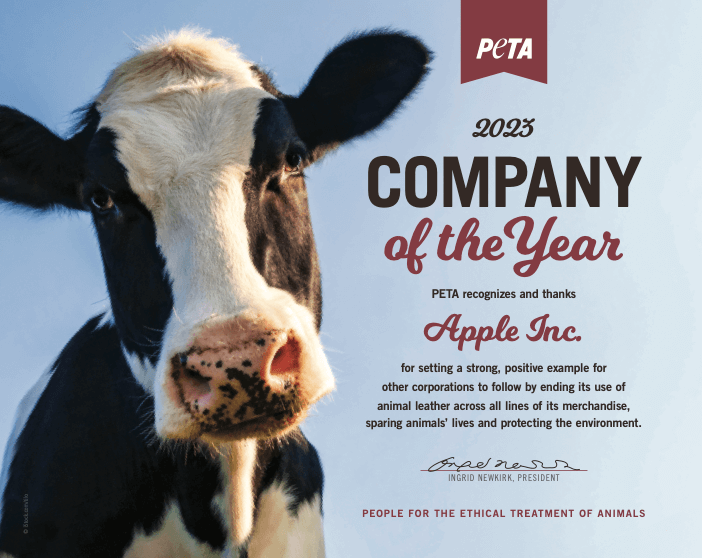
The company’s decision to say “adIOS” to leather—a cruelly obtained coproduct of the meat industry—will spare countless animals and help mitigate the climate catastrophe. The brand will instead offer leather-free accessories, allowing compassionate consumers to feel good about purchasing animal and eco-friendly products.
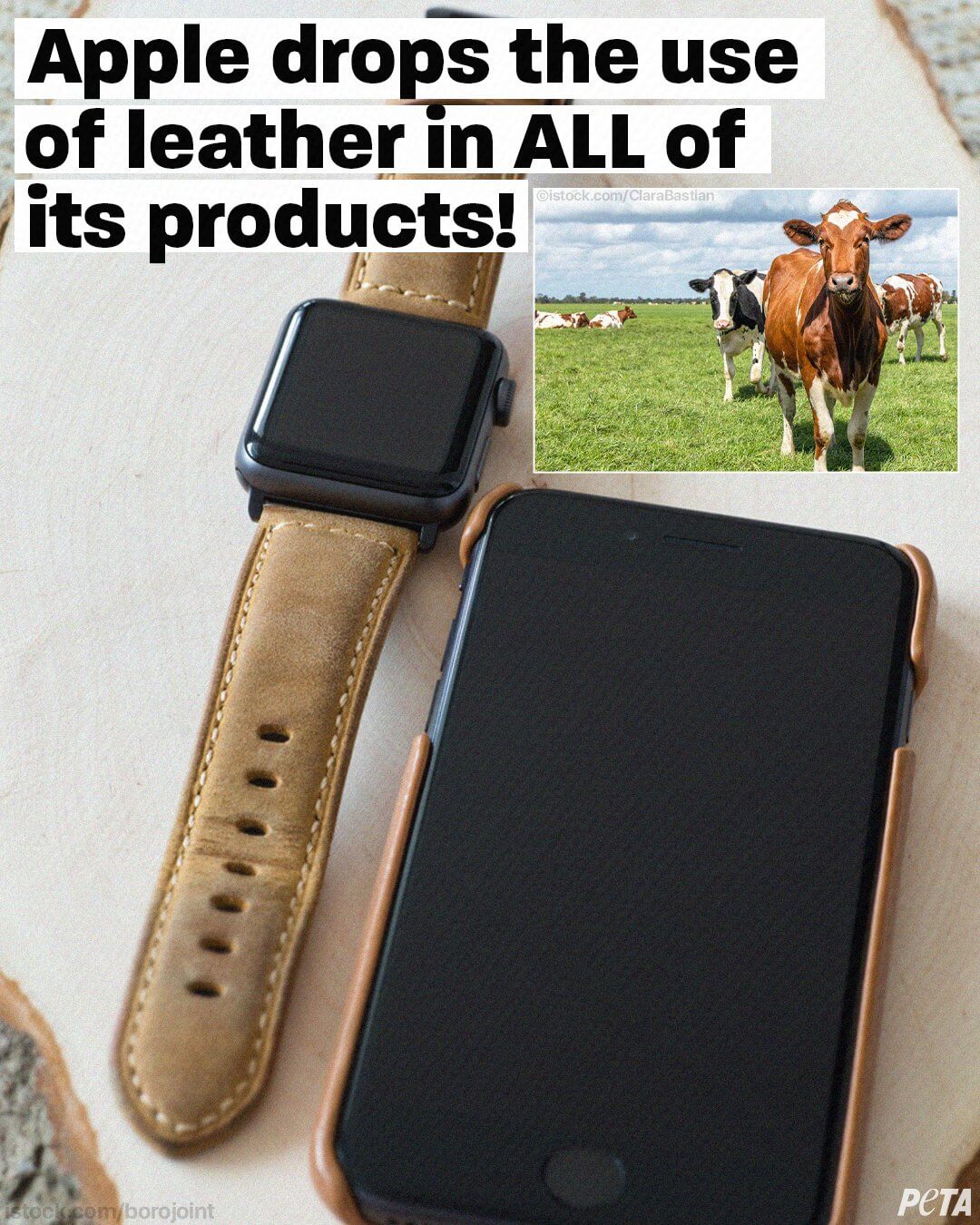
Hey, Siri: What’s Wrong With Leather?
Because animals’ skin is one of the most profitable coproducts of the meat industry, purchasing leather directly contributes to the slaughter of countless individuals. Worldwide, the meat and leather industries kill more than a billion cows, sheep, and other animals for their skins every year. The vast majority of cows killed for their skins endure horrific practices of the meat industry—including castration, branding, and tail docking—without any painkillers. Cows naturally form long-term friendships and have complex social hierarchies, but the ones raised for meat and leather typically spend their lives on crowded, filthy lots, where they have little opportunity to meaningfully socialize with others.
Additionally, much of the leather sold in U.S. stores comes from countries where animal welfare laws are nonexistent or largely unenforced. In Brazil—the world’s largest source of animal hides—a PETA exposé revealed that workers beat cows and bulls, burned them on the face with hot irons, and electroshocked them before their skin was turned into leather products like car interiors.
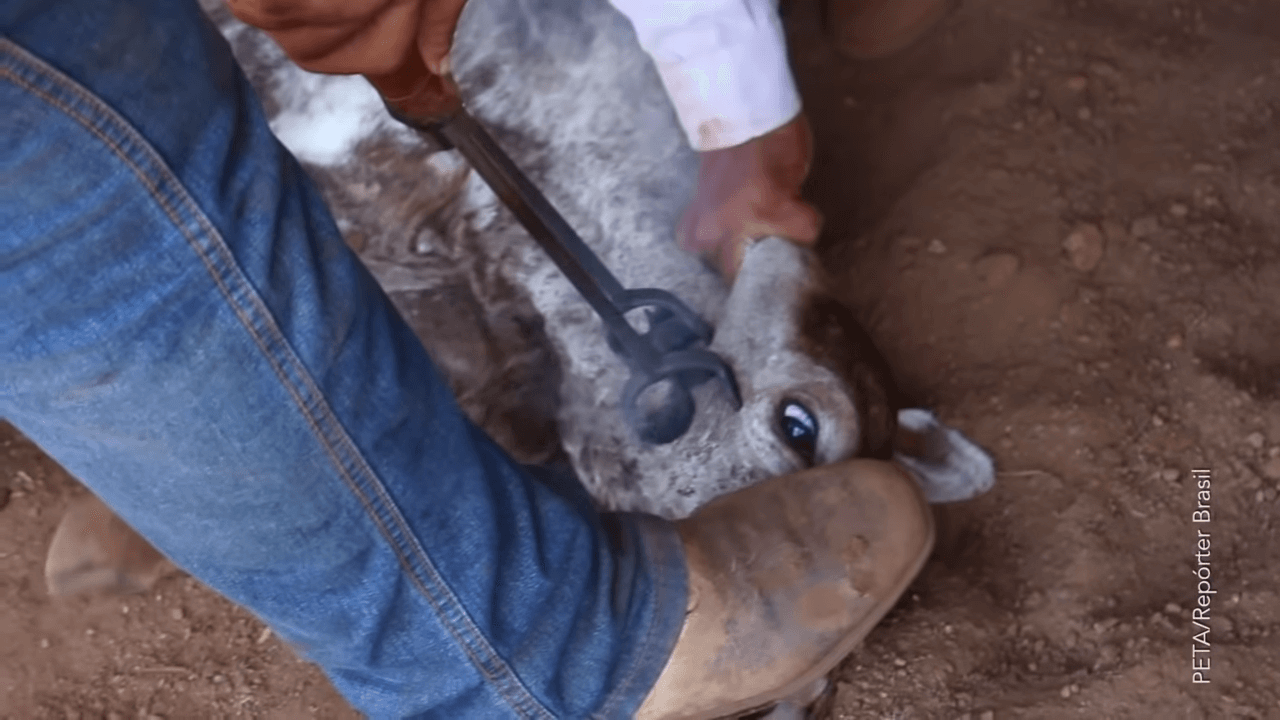
No matter where it’s obtained, anything made from an animal is the product of extreme violence and exploitation.
Is Leather Bad for the Environment?
According to the Higg Materials Sustainability Index, leather made from cows’ skin contributes far more to water pollution, water depletion, and greenhouse gas emissions than any synthetic or plant-based vegan leather. Raising cows requires that thousands of acres of land be cleared of trees and the animals who naturally live there. Roughly 80% of deforestation in the Brazilian Amazon rainforest has been caused by cattle ranchers destroying land to raise animals for their skin and flesh.
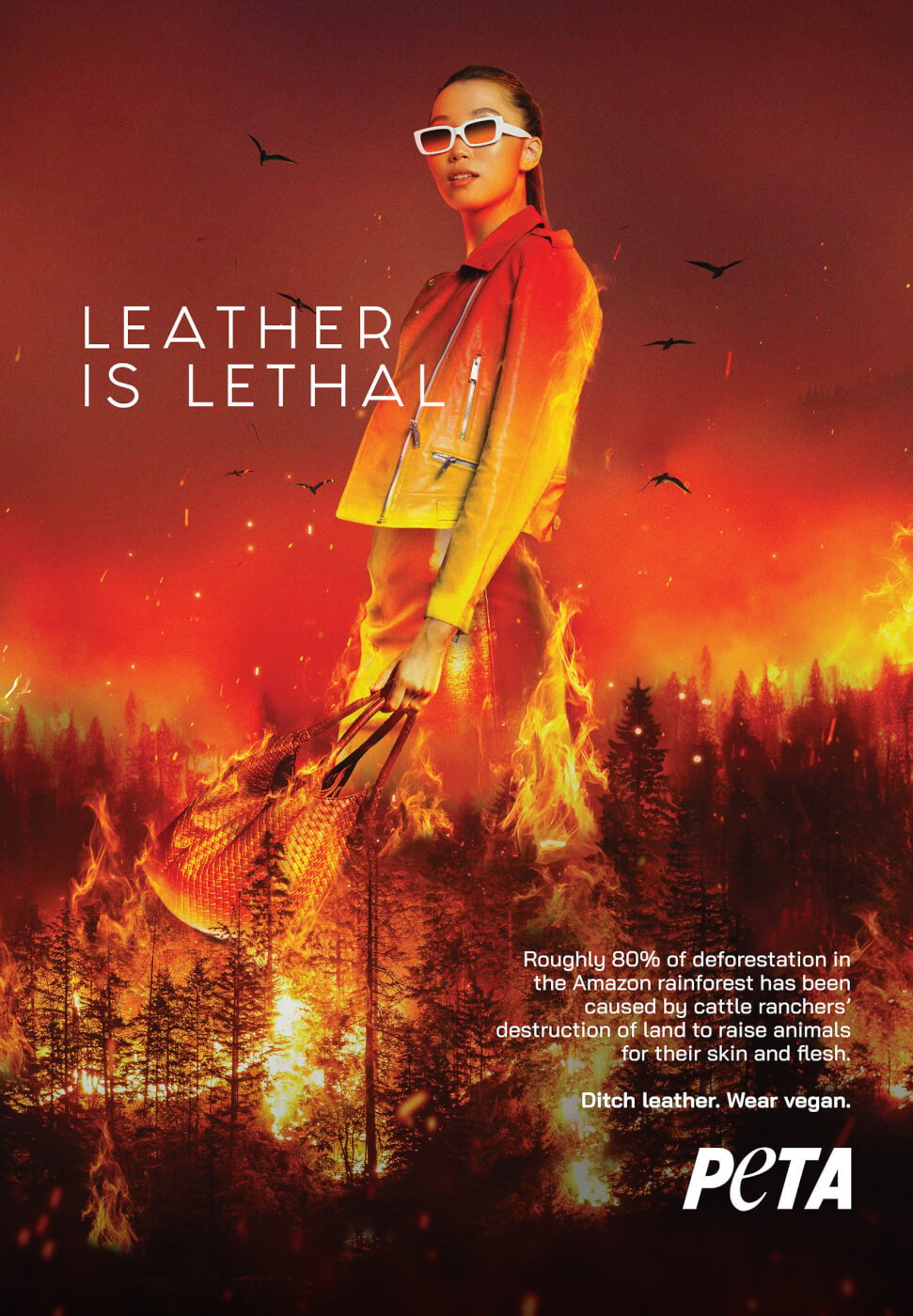
Turning animals’ skin into leather also requires massive amounts of energy and dangerous chemicals, including mineral salts, formaldehyde, coal-tar derivatives, and various oils, dyes, and finishes, some of them cyanide-based. This process, which halts decomposition through chemical baths and dehydration, is anything but “eco-friendly.” In addition, the toxic waste runs off into local water sources in countries like Bangladesh, poisoning entire ecosystems and greatly increasing tannery workers’ risk of developing skin cancer. An estimated 90% of Bangladeshi workers will die before the age of 50 because of the hazardous production of leather.
The extreme suffering in the meat and leather industries, as well as their devastating environmental impacts, are the main reasons why hundreds of major designers and retailers are developing innovative, animal-free textiles made from plants, such as leather created from mushrooms, cacti, or grapes.
Apple Updates to Leather-Free Products
Apple has already launched several leather-free, FineWoven-based accessories—including Apple watch straps, wallets, and iPhone cases. According to the company, the new material, which is recycled, has “significantly lower emissions compared to the more carbon-intensive leather.”
Sync or Swim: PETA’s Company of the Year Sets an Example for Other Major Brands
Apple may not need any more accolades—for multiple years, it has retained its crown as the most valuable company worldwide—but the brand’s decision to end its use of leather across all its product lines is a massive win for our fellow animals and for the planet. For this exemplary move, PETA is proud to name Apple our 2023 Company of the Year.
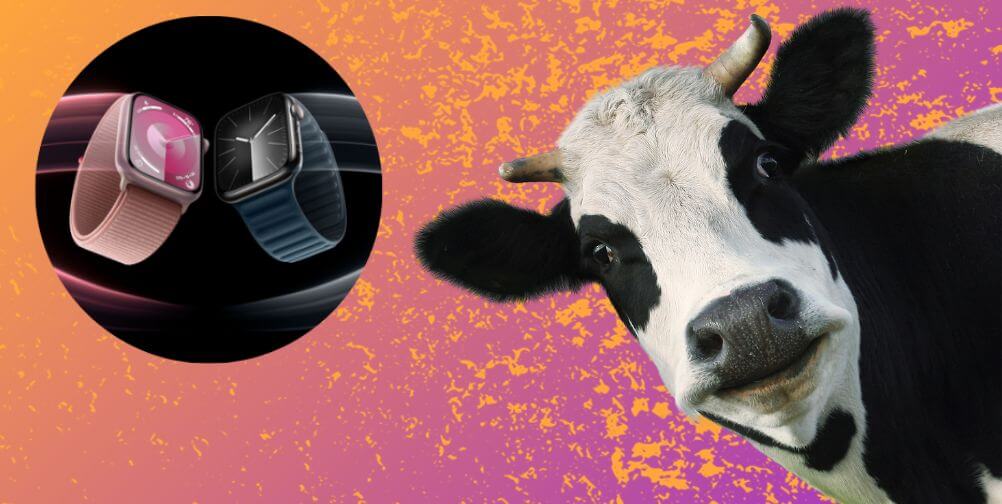
Follow the Example of PETA’s Company of the Year by Going Vegan!
There’s nothing stylish about the skins of slaughtered animals. Never buy leather or any other material stolen from sentient beings, and urge companies like Levi’s to switch to vegan leather:

